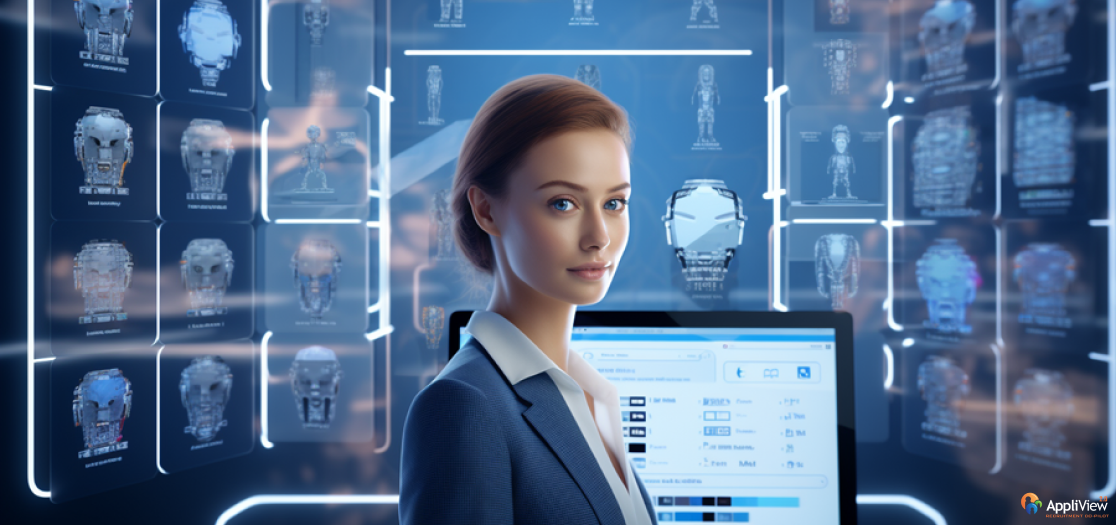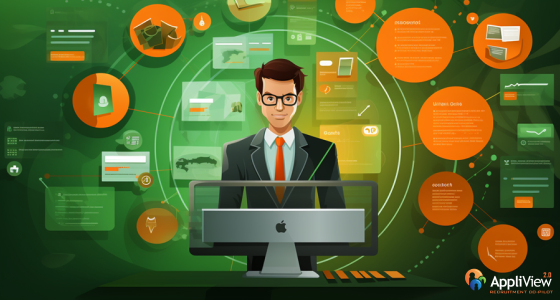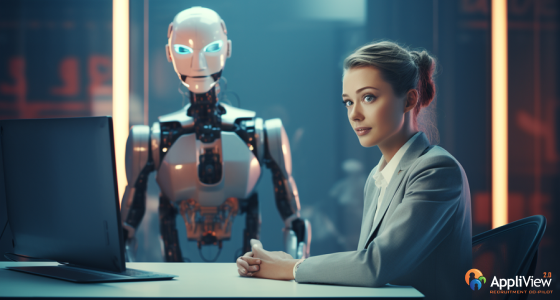AI in Recruitment: Efficiency Beyond Speed
October 13, 2023

AI in recruitment offers greater efficiency than speed, as it can improve accuracy, provide suitable placements, and contribute to long-term benefits. AI algorithms are adept at analyzing resumes and candidates, ensuring no potential candidate is overlooked due to human error. They use data-driven insights to match candidates with job roles, considering qualifications and cultural compatibility. Companies that incorporate AI in their recruitment processes report significant quality improvements, reduced attrition rates, and increased employee satisfaction. AI-based recruitment technologies and tools, such as resume parsing, candidate evaluation, and predictive analytics, automate the initial recruitment process and identify the most qualified candidates. As technology evolves, AI solutions will likely transform the HR industry, enabling businesses to make smarter, more strategic employment decisions.
AI in Recruitment: Efficiency Beyond Speed
In today’s fast-paced business environment, companies are always looking for methods to streamline their operations and remain competitive. When it comes to recruitment, “speed” has long been the watchword. In any case, the quicker you employ, the quicker you can fill crucial positions, correct? Not necessarily, no. It is equally crucial to consider efficiency, accuracy, and the long-term effects of your hiring decisions as it is to consider speed. Herein lies the role of AI in recruitment, which promises greater efficacy than speed.
Speed versus Productivity

AI in recruitment isn’t just about fast results. Certainly, AI-powered systems can process enormous amounts of data and quickly sift through resumes. However, its true value resides in its capacity to ensure more accurate and suitable placements, which will ultimately result in long-term benefits for your organization. Let’s dispel the myth that AI used in recruitment is exclusively concerned with speed. Despite the fact that it accelerates the initial screening process, it goes far beyond that.
How AI Contributes to Accuracy
Incredibly adept at analyzing resumes and candidates, AI algorithms are. In contrast to humans, they do not experience fatigue or bias. This ensures that no potentially excellent candidate is overlooked due to human error, as AI can evaluate candidates more exhaustively and impartially.
AI-powered recruitment tools utilize data-driven insights to more precisely match candidates with job roles. These algorithms take into account not only the candidate’s qualifications, but also their prospective cultural compatibility with your organization. This decreases the likelihood of employing a candidate who appears to be a good fit on paper but does not mesh well with your team or organization. Numerous real-world examples exist. Companies that have incorporated AI into their recruitment processes report significant quality improvements in their hires. Reduced attrition rates and increased employee satisfaction have contributed to their long-term success.
Appropriate Placements for Long-Term Gains
Imagine employing a candidate who not only possesses the necessary skills and qualifications, but also complements your company’s culture. This scenario is precisely what AI is capable of creating. By analyzing data from multiple sources, such as credentials, social media profiles, and personality tests, AI can identify candidates who are more likely to flourish in your organization.
These appropriate placements have long-term benefits. When employees feel secure in their roles and aligned with the company’s values, they are more likely to remain with the organization and to perform better. This results in recruitment and training cost savings and an increase in overall productivity.
AI Recruitment Technologies and Tools

Now that we’ve established the importance of AI in recruitment, let’s examine the implementation of AI in the recruiting process. There are numerous AI-based recruitment technologies and tools available on the market, each with its own set of features and capabilities.
AI recruitment tools are among the most popular choices. These tools provide a variety of features, including resume parsing, candidate evaluation, and predictive analytics. Choosing the best AI recruitment solution for your organization can be difficult. It is essential to consider your individual requirements, budget, and the scalability of the technology.
The Prospects for AI in Recruiting
As technology evolves, so does the function of AI in recruitment. Emerging trends and innovations will likely transform the HR industry. Chatbots for initial candidate interaction, virtual reality simulations for assessing skills, and natural language processing for more in-depth candidate evaluation are just a few examples of the thrilling advancements on the horizon.
To maintain a competitive advantage in recruitment, businesses should consider adopting these cutting-edge AI solutions. Those who adopt these technologies will be better equipped to identify top talent, reduce recruitment expenses, and cultivate a workforce that is more inclusive and diverse.
The conclusion
In conclusion, the benefits of AI in recruitment extend far beyond mere efficiency. Its ability to improve accuracy, provide suitable placements, and contribute to long-term benefits renders it an invaluable asset for contemporary enterprises. AI enables businesses to make smarter, more strategic employment decisions by automating routine tasks, reducing bias, and enhancing candidate-organization alignment.
